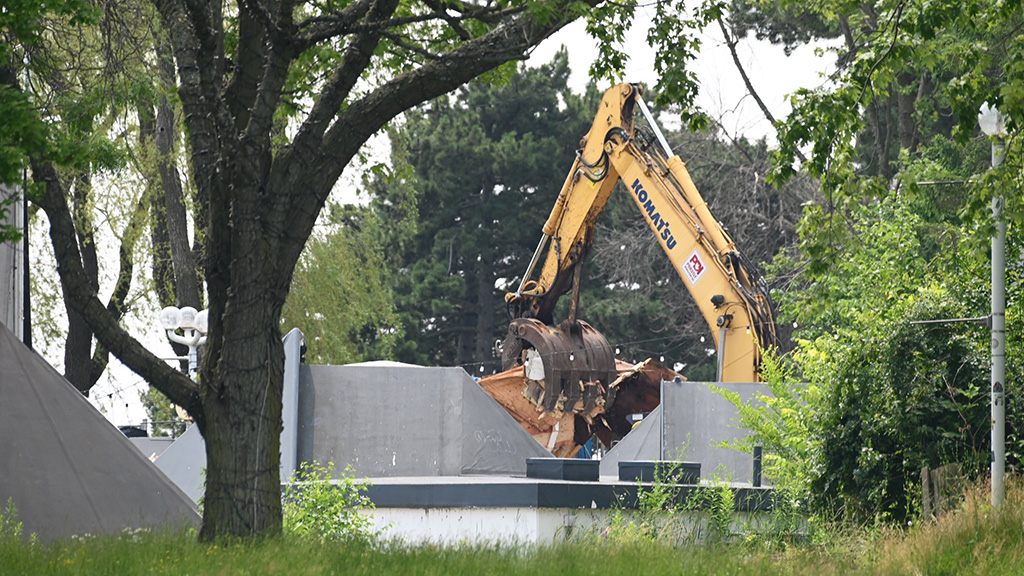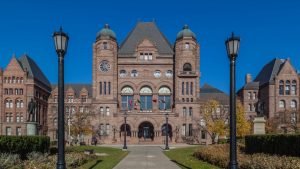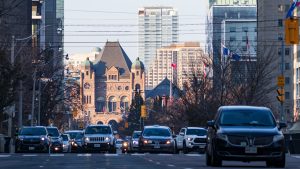Construction will be allowed to resume on the Ontario Place site after a judge dismissed a legal challenge to stop the controversial redevelopment.
The applicant, Ontario Place Protectors (OPP), submitted the challenge, arguing the Rebuilding Ontario Place Act, 2023 (ROPA), passed by Premier Doug Ford’s government is unconstitutional and gives the provincial government the power to expedite the redevelopment of the site and exempts the project from the Environmental Assessment Act.
“Unfortunately, Ontario Place Protectors has lost their judicial challenge of Bill 154 that strips protection from Ontario Place,” grassroots group Ontario Place for All posted on its X account. “It’s now up to the people of Ontario to get Ford to stand down on the destruction of Ontario Place West Island.”
OPP, a broad coalition of organizations and citizens initially formed as a reaction to the Ford government’s proposals for Ontario Place, was granted a hearing on July 19. The province agreed to temporarily halt work on the site, including demolition of trees, shrubs or buildings, until the court rendered its decision. The site is being prepared to make way for a spa and indoor water park.
Ontario Superior Court Justice Lisa Brownstone upheld the ROPA and dismissed the application July 26.
“The Court also declined to grant the injunctive relief sought by the applicant,” said Keesha Seaton, media spokesperson for the Ministry of the Attorney General.
“Our government is pleased with the decision and eager to move forward with this important project. As this matter is in the appeal period it would be inappropriate to comment further.”
In a statement, OPP called the decision “surprising and disturbing.”
Eric Gillespie, legal counsel for the applicant, said the decision does not appear to address the precedent set by Ontario’s actions.
“People may not be aware of how far this legislation has gone and what it means for the future,” he said. “The overarching issue is this. If you can essentially eliminate all laws for Ontario Place there is now nothing preventing the government from doing this for anything, including new expressways, airports, eliminating the Greenbelt or any other government project. One would think almost every resident of Ontario should be very concerned about this prospect.”
In the decision, Brownstone addresses three issues: Does s. 17(2) of ROPA violate s. 96 of the Constitution Act, 1867? Should ss. 9, 10, 11, and 17(2) of ROPA be declared a breach of public trust? And should the effect of this order be stayed? Should an injunction issue to stop activity at Ontario Place for five days following the release of this decision?
The Ontario Superior Court of Justice has upheld the ROPA, including provisions that expressly eliminate any court or tribunal’s ability to grant any remedy under all Ontario statutes, the OPP statement reads, adding the act also eliminates any ability to claim compensation or damages from the government or on its face for a court to grant any remedy related to judicial review. The decision acknowledges that government action can go too far but finds it has not in this case.
“The difficulty many people will likely have with this ruling is that the government could not possibly have gone further than eliminating all remedies under all Ontario statutes,” said Gillespie.










Recent Comments
comments for this post are closed